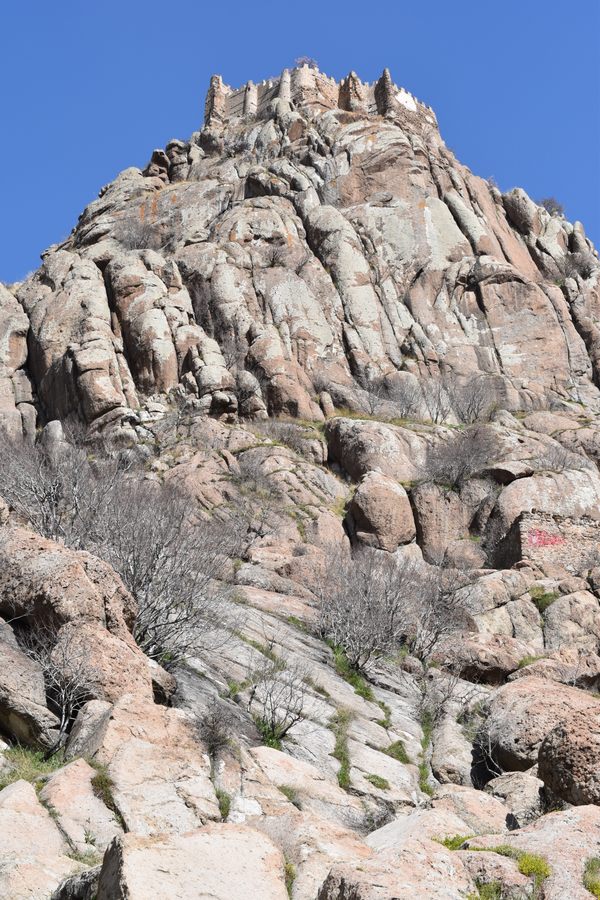Afyonkarahisar, commonly known as Afyon, is an ancient city in the Anatolia region of western Turkey. As the world’s largest producer of pharmaceutical opium, its name can be translated as “black poppy fortress,” which also referrs to the imposing castle towering over the city.
Originally built by the Hittite king Mursilis II around 1350 BC, the fort stands atop a 740-foot-tall mass of volcanic rock, changing hands and reconstructed countless times throughout its history. First named Hapanuwa, it was later occupied by Phyrigians, Lydians, and the Achaemenids of Persia.
The area was conquered by Alexander the Great in 333 BC, and the city was renamed Akroinon or Acroenus. Afterwards came the Seleucids, Pergamenes, and the Romans, followed by the Byzantine Empire.
In 1071, the Seljuks took over the city and gave it the name Kara-Hisar. It was fought over many times during the ages of the Crusades, ending up in the hands of the Ottoman Empire. It fell to Tamerlane’s invasion and was lost for a few decades, but recaptured by the Ottomans in 1429, when it grew to be a major center of opium production.
Today, much of the castle that survives are the remains of Byzantine and Ottoman fortifications, with some modern-day restorations. It is freely accessible, but the hike to the summit can be somewhat strenuous.

